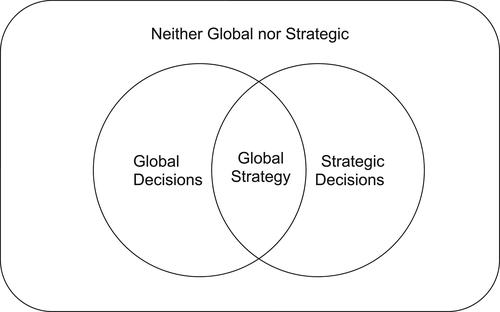A robust academic field must set and revisit boundary conditions that define where, when, and to whom its insights apply. This is particularly true for a field such as global strategy where the ubiquity of the key terms invites indiscriminate use of the phrase. This essay argues that it is useful to define the field of global strategy as the subset of questions that meet the criteria for both “global” and “strategic” decisions. We offer an a priori approach to identifying and formulating problems that are unique to the global strategy field, suggest how our approach may help scholars better understand the “strategicness” of global decisions, and ultimately, offer a way for individuals with varied disciplinary or topical interests to connect with the field's core.
It has been observed that few executives can clearly articulate their firm's global strategy. This observation is disappointing given the development of theoretical insights from the fields of international business and strategic management that suggest alternative ways in which organizations can reliably and repeatedly create, capture, and deliver value. The existence of this shortcoming suggests that it will be beneficial to develop unambiguous statements that define what constitutes a global, a strategic, and a globally strategic decision. This essay offers a priori definitions of these terms in the hope of helping individuals both consider the unique and distinctive elements of global strategy and better understand the core decisions that guide an organization's pursuit of its global objectives, scope, and sources of advantage.



